ined faculty
Some of the best and brightest of our field have volunteered their time and expertise to make this Institute for New Educational Developers possible. Click below to see a brief bio for each of our talented faculty.
INED Online Pre-Conference Asynchronous Resources
Available asynchronously starting July 1, 2024, during the conference, and for a period after the conference
Bridget Arend, Metropolitan State University of Denver (she/her)
Associate Director of Teaching and Learning, Center for Teaching, Learning and Design, Metropolitan State University of Denver
Bridget Arend, PhD, is the Associate Director of Teaching and Learning at Metropolitan State University of Denver with 25 years of experience teaching and supporting teaching and learning in higher education. She continues to teach courses in Education and Applied Communications at MSU Denver and the University of Denver. Bridget owns a professional development organization called Intentional College Teaching and continues to pursue research interests including teaching strategies in higher education, the role of reflection in learning, and alternative ways to evaluate teaching.
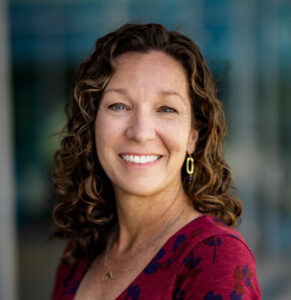
Esin Çağlayan, Izmir University of Economics, Turkey (she/her)
Asst. Prof. Esin Çağlayan is an Assistant Professor of Educational Sciences at Izmir University of Economics, Turkey. She currently serves as the Director of the Teaching and Learning Research and Application Centre – TLC, providing training in instructional design, technology-enhanced teaching, and assessment to academic staff. Her academic interests encompass educational technologies, instructional design, learning analytics, organizational behaviour, and assessment and evaluation.
https://www.linkedin.com/in/esin-caglayan-phd-6307/
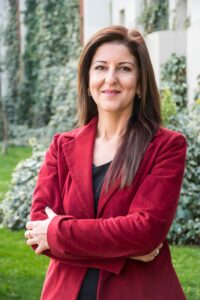
Diane Chapman, NC State University (she/her)
In her role as Executive Director and Associate Vice Provost for Faculty Development Dr. Chapman leads the faculty development activities for the Office for Faculty Excellence at NC State University. She is also a Teaching Professor in the College of Education. For over 25 years, Dr. Chapman has written and researched extensively regarding career development of non-tenure track faculty, instructional design, and program evaluation. She has also won awards for her work in publishing, online and distance learning. Her recent work has focused on breaking down access barriers to faculty development programming and leadership development for faculty. Prior to her work in academia, Dr. Chapman worked in training and development roles in industry.
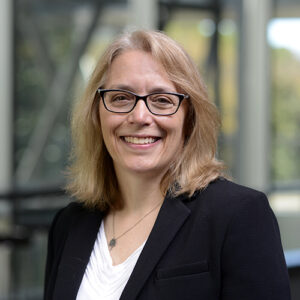
Flower Darby, University of Missouri (she/her)
Flower Darby celebrates and promotes effective teaching in all modalities to advance equitable learning outcomes for all students. Building on her experience teaching in person and online for over 28 years in a range of subjects from English to Jazz Dance, Darby empowers faculty to teach inclusive and equity-focused classes in all modalities. Her recent books include The Norton Guide to Equity-Minded Teaching (2023) and Small Teaching Online: Applying Learning Science in Online Classes (2019).
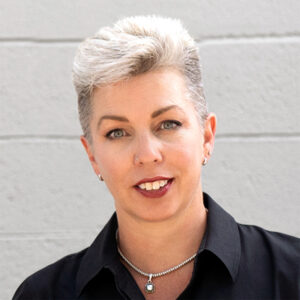
Dana Dawson, Temple University (she/her)
As the Associate Director of Teaching and Learning at the CAT, Dana is dedicated to advancing evidence-based teaching practices at Temple University. She manages the CAT’s Teaching in Higher Education Certificates, designs and delivers faculty development programs on a wide range of teaching topics, and conducts individual consultations with faculty. Dana’s work in higher education has included classroom instruction, student mentoring, faculty development, curriculum management, and program assessment. She has presented and published nationally and internationally on active learning strategies, assessing student learning, and environmental factors that impact learning and retention. She earned her BA in Sociology from the University of Lethbridge and her MA and PhD in Social and Political Thought from York University.
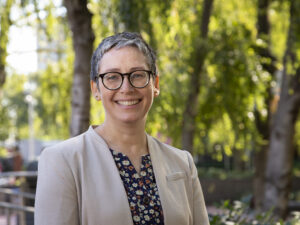
Michele DiPietro, Kennesaw State University (they/them)
Dr. Michele DiPietro is the Executive Director for Faculty Development, Recognition, and the Center for Excellence in Teaching and Learning and a Professor in the School of Data Science and Analytics at Kennesaw State University. Dr. DiPietro is a co-author of “How Learning Works: 8 Research-Based Principles for Smart Teaching” (revised and expanded 2nd edition). They have presented hundreds of workshops and keynotes at numerous institutions and conferences in the US and abroad, and their scholarship has been translated into 7 languages. Dr. DiPietro is a former president of the POD Network and a recipient of the Bob Pierleoni Spirit of POD award, the highest honor bestowed in the field of educational development.
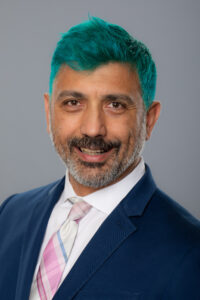
Lisa Jong, University of Wisconsin-Madison (she/her)
Lisa arrived at the University of Wisconsin from the University of Michigan’s Center for Research on Learning and Teaching with a background in supporting graduate students and postdoctoral scholars in their teaching roles. Her previous roles include teaching college writing and serving as an instructional consultant on an undergraduate course redesign initiative. Lisa’s academic background is in English literature, with a focus on Asian American and American Indian/Indigenous writing. Her interests in educational development include developing professional learning communities and facilitating antiracist discussions and writing assessments.
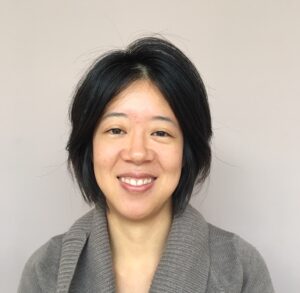
Julie Philips, Thomas Jefferson University (she/her)
Julie’s titles have included Visiting, Assistant and Adjunct Professor—Teaching, Course Director, Assistant Director, and Assistant Provost over her 25+ years in higher education. Three threads dominate her academic career—leading multi-disciplinary teams through curricular change, finding the balance among pedagogy, ideas and technology, and supporting faculty at all stages of their career to create and build robust learning experiences. She considers herself a generalist, and this can be traced back to her PhD from Purdue University in Rhetorical Theory & Public Address because ideas must be explored through communication.
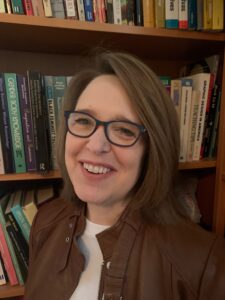
Jeff Rients, Temple University (he/they)
Jeff Rients serves as Associate Director of Teaching and Learning Innovation for Temple University’s Center for the Advancement of Teaching, where he develops and facilitates programming around high- and low-tech approaches to perennial pedagogical challenges. He also serves as a faculty member for the Center’s Teaching in Higher Education Certificate program. Jeff got his start in educational development in Illinois State University’s award-winning writing program. Also while at ISU he received a university-level teaching award. Jeff believes that learning is messy and that we should embrace the mess.
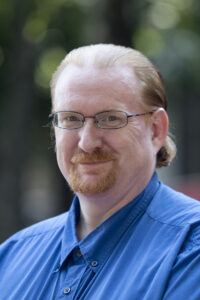
Karen Skibba, University of Wisconsin-Madison (she/her)
Karen Skibba, Ph.D., specializes in online and blended faculty development and developing quality online and blended courses. She also develops and facilitates a variety of learning communities and workshops and develops resources to help all instructors enhance teaching and learning. Karen has authored book chapters on educational technologies and online and blended teaching and faculty development. She presents her award-winning research at international conferences.
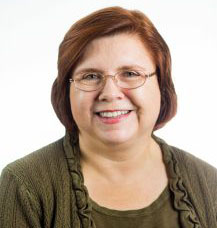
Thomas J. Tobin, University of Wisconsin-Madison (he/him)
Thomas J. Tobin, PhD, MSLS, PMP, MOT, CPACC is a founding member of the Center for Teaching, Learning, & Mentoring at the University of Wisconsin-Madison, as well as an internationally recognized scholar, author, and speaker on technology-mediated education. His books include
Evaluating Online Teaching: Implementing Best Practices (2015).
The Copyright Ninja (2017).
Reach Everyone, Teach Everyone: Universal Design for Learning in Higher Education (2018).
Going Alt-Ac: A Guide to Alternative Academic Careers (2020).
UDL for FET Practitioners: Guidance for Implementing Universal Design for Learning in Irish Further Education and Training (2021).
Find him on various social media and at thomasjtobin.com.
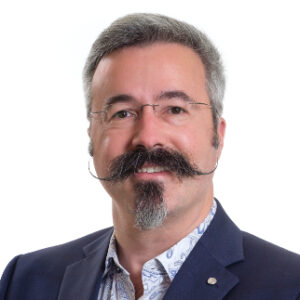
Day 1: Monday, July 29, 2024
Bridget Arend, MSU Denver (she/her)
Associate Director of Teaching and Learning,Center for Teaching, Learning and Design, Metropolitan State University of Denver
Bridget Arend, PhD, is the associate director of teaching and learning at Metropolitan State University of Denver with 25 years of experience teaching and supporting teaching and learning in higher education. She continues to teach courses in Education and Applied Communications at MSU Denver and the University of Denver. Bridget owns a professional development organization called Intentional College Teaching and continues to pursue research interests including teaching strategies in higher education, the role of reflection in learning, and alternative ways to evaluate teaching.

Derek Bruff, University of Mississippi (he/him)
Derek Bruff is an educator, author, and higher ed consultant. He directed the Vanderbilt University Center for Teaching for more than a decade, where he helped faculty and other instructors develop foundational teaching skills and explore new ideas in teaching. Bruff has written two books, Intentional Tech: Principles to Guide the Use of Educational Technology in College Teaching (West Virginia University Press, 2019) and Teaching with Classroom Response Systems: Creating Active Learning Environments (Jossey-Bass, 2009). He writes a weekly newsletter called Intentional Teaching and produces the Intentional Teaching podcast.

Christian Castro, Madison College of Engineering (he/him)
A nationally recognized thought leader in inclusive teaching, Dr. Christian Castro has worked in a variety of academic fields in higher education as a faculty member, educational consultant, and administrator for over 15 years. He has served as core facilitator on the NSF-funded program, ASPIRE: National Alliance for Inclusive and Diverse STEM Faculty, and is a featured expert on the American Society of Engineering Education (ASEE) inaugural course on inclusive teaching. At the UW-Madison College of Engineering, his portfolio includes leading efforts that integrate diversity, equity, inclusion, access, and belonging with instructional design and faculty development.
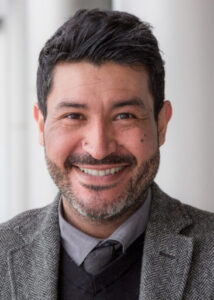
Diane Chapman, North Carolina State University (she/her)
In her role as Executive Director and Associate Vice Provost for Faculty Development Dr. Chapman leads the faculty development activities for the Office for Faculty Excellence at NC State University. She is also a Teaching Professor in the College of Education. For over 25 years, Dr. Chapman has written and researched extensively regarding career development of non-tenure track faculty, instructional design, and program evaluation. She has also won awards for her work in publishing, online and distance learning. Her recent work has focused on breaking down access barriers to faculty development programming and leadership development for faculty. Prior to her work in academia, Dr. Chapman worked in training and development roles in industry.

Flower Darby, University of Missouri (she/her)
Flower Darby celebrates and promotes effective teaching in all modalities to advance equitable learning outcomes for all students. Building on her experience teaching in person and online for over 28 years in a range of subjects from English to Jazz Dance, Darby empowers faculty to teach inclusive and equity-focused classes in all modalities. Her recent books include The Norton Guide to Equity-Minded Teaching (2023) and Small Teaching Online: Applying Learning Science in Online Classes (2019).

Lindsay Doukopoulos, Auburn University (she/her)
Lindsay Doukopoulos, Ph.D., is the Associate Director for Educational Development at Auburn University’s Biggio Center. With a strong commitment to building a supportive teaching community, Lindsay fosters creativity and empowers faculty to innovate and inspire in the classroom. Her educational development research focuses on podcasting, storytelling, and playful pedagogy to promote joyful, generative change while emphasizing diversity, equity, inclusion, and justice. As a leader in educational development, she believes in the transformative power of dialogue and actively engages in facilitating change through programs, consultations, and various leadership roles, including Vice Chair of the Southern Regional Faculty and Instructional Developer Consortium (SRFIDC), Co-Chair of the POD Network’s Digital Resources and Innovation (DRI) committee, and Host of Centering Centers: a POD Network podcast.

Stephanie Laggini Fiore, Temple University (she/her)
Stephanie serves as Associate Vice Provost and Senior Director of the Center for the Advancement of Teaching (CAT) at Temple University, where she leads efforts to catalyze educational transformation that makes an impact on student learning outcomes as well as faculty career satisfaction. Her recent research investigates how faculty role-identity impacts the ability to implement meaningful teaching change. She received her Ph.D. in Italian at Rutgers University and has enjoyed over 35 years teaching Italian language, literature, and culture, immigration literature, and courses in the Teaching in Higher Education Certificate. Her previous administrative roles included director of the Italian program and director of the Intensive English Language Program. Stephanie welcomes all INED participants and faculty to this year’s INED!
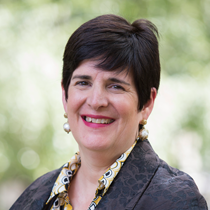
Nicole Frank, Fort Hays State University (she/her)
Nicole Frank has worked in education since 1997, as a high school English teacher, college composition instructor, and educational developer. As the Director of Professional Development in FHSU’s Teaching Innovation and Learning Technologies, she facilitates professional development opportunities for over 800 faculty. Nicole holds a BA in English Education from Fort Hays State University, and an M.Ed. in Adult Education and Training from Colorado State University; she is a doctoral candidate at Baker University and her current research interests include gender issues and assessment in educational development.
https://www.linkedin.com/in/nicolemfrank/
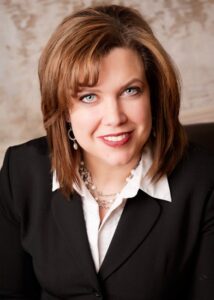
Linda Hasunuma, Temple University (she/her)
As an Asst. Director at the Center for the Advancement of Teaching at Temple University, Linda focuses on inclusive pedagogy and supporting First Gen and BIPOC students and faculty. Within POD, Linda serves on the Diversity, Equity, and Inclusion Leadership Committee as an Outreach Co-Coordinator. A proud First Gen with a Ph.D. in Political Science from UCLA and twenty years of teaching and mentoring experience, Linda is committed to holistic and reflective teaching practices that nurture belonging, center students, and consider how intersecting identities and lived experiences shape educational experiences, opportunities, and outcomes. She recently published in The Journal of Political Science Education and has two book contracts with Routledge/Taylor & Francis (formerly Stylus Publishing).
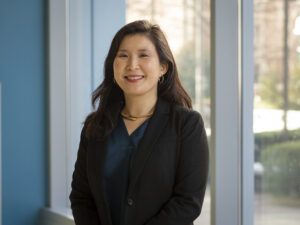
Eric Kaldor, Brown University (he/him)
Eric Kaldor has led the Assessment and Interdisciplinary Teaching Communities hub at the Sheridan Center since 2020. In that role, he supports the assessment of student learning, teaching effectiveness, and curricula across Brown as well as assessment of Sheridan Center programs. He has facilitated a range of intensive educational development programs including Sheridan’s Seminar for Transformation around Anti-Racist Teaching and the University of Rhode Island’s High Impact Teaching Seminar. He has worked in a wide range of institutions including the University of Rhode Island, SUNY Brockport, and Temple University. On the POD Professional Development Committee, he supports peer mentoring for educational developers through the POD Connects program.
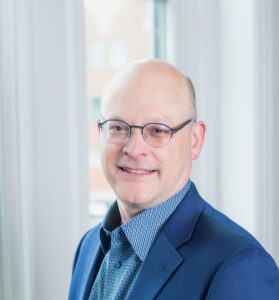
James Lang, University of Notre Dame (he/him)
James M. Lang is a visiting professor at the University of Notre Dame’s Kaneb Center for Teaching Excellence in 2023-24. He is the author of six books, the most recent of which are Distracted: Why Students Can’t Focus and What You Can Do About It (Basic Books, 2020), and Small Teaching: Everyday Lessons from the Science of Learning (Jossey-Bass, 2016). He writes a monthly column on teaching and learning for The Chronicle of Higher Education, and his book reviews and public scholarship on higher education have appeared in a wide variety of newspapers and magazines, including the Boston Globe, Chicago Tribune, Time, The Conversation, Commonweal, and America.
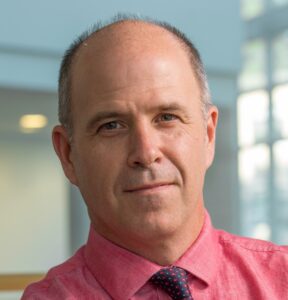
Naomie Nyanungo, West Chester University of Pennsylvania (she/her)
Hleziphi (Naomie) Nyanungo is Associate Provost for Teaching and Learning Innovation at West Chester University of Pennsylvania where she leads a recently established Teaching and Learning Center. She is passionate about nurturing learning environments where students and instructors of all backgrounds and situations feel valued and supported. Prior to joining WCU, she served as the Director of Educational Technology at the Center for the Advancement of Teaching at Temple University.
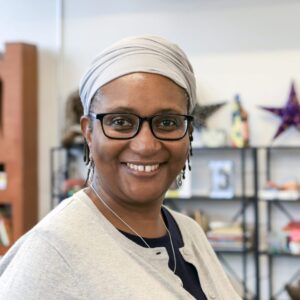
Christine Rener, Grand Valley State University (she/her)
Christine Rener is Vice Provost for Instructional Development and Innovation, Director of the Robert and Mary Pew Faculty Teaching and Learning Center, and Professor of Chemistry at Grand Valley State University in Grand Rapids, Michigan and the President-Elect of the POD Network. She earned her Ph.D. in Biochemistry, Molecular Biology and Cell Biology from Northwestern University. Christine was the Founding Director of Faculty Development at Carthage College where she also taught chemistry and served in a variety of administrative roles. Within the POD Network, she has served on the Core Committee and as chair of the Professional Development and External Partnerships and Outreach Committees.
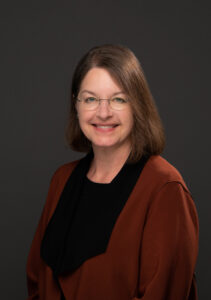
Rosemary Tyrell, University of California Riverside (she/her)
Rosemary Tyrrell, EdD, is currently the Director of the Office of Faculty Development and an Assistant Clinical Professor in the Department of Social Medicine, Population and Public Health at the University of California Riverside School of Medicine. Dr. Tyrrell oversees a six-person unit that provides 100s of faculty development programs and services to support excellence in teaching. Her unit also has primary responsibility for curriculum mapping and educational technology. Dr. Tyrrell chairs and serves on a number of committees, including the LCEM Standard 9 Committee and the TEACH Team (Teaching Excellence and Course Enhancement). Her duties also include overseeing the Administrative Fellowship program at the School of Medicine.
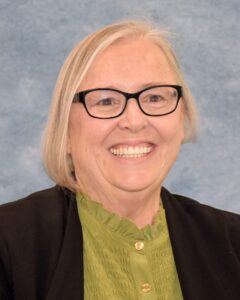
Day 2: Tuesday, July 30, 2024
Derek Bruff, University of Mississippi (he/him)
Derek Bruff is an educator, author, and higher ed consultant. He directed the Vanderbilt University Center for Teaching for more than a decade, where he helped faculty and other instructors develop foundational teaching skills and explore new ideas in teaching. Bruff has written two books, Intentional Tech: Principles to Guide the Use of Educational Technology in College Teaching (West Virginia University Press, 2019) and Teaching with Classroom Response Systems: Creating Active Learning Environments (Jossey-Bass, 2009). He writes a weekly newsletter called Intentional Teaching and produces the Intentional Teaching podcast.

Esin Çağlayan, Izmir University of Economics, Turkey (she/her)
Asst. Prof. Esin Çağlayan is an assistant professor of Educational Sciences at Izmir University of Economics, Turkey. She currently serves as the Director of the Teaching and Learning Research and Application Centre – TLC, providing training in instructional design, technology-enhanced teaching, and assessment to academic staff. Her academic interests encompass educational technologies, instructional design, learning analytics, organizational behaviour, and assessment and evaluation.
https://www.linkedin.com/in/esin-caglayan-phd-6307/

Flower Darby, University of Missouri (she/her)
Flower Darby celebrates and promotes effective teaching in all modalities to advance equitable learning outcomes for all students. Building on her experience teaching in person and online for over 28 years in a range of subjects from English to Jazz Dance, Darby empowers faculty to teach inclusive and equity-focused classes in all modalities. Her recent books include The Norton Guide to Equity-Minded Teaching (2023) and Small Teaching Online: Applying Learning Science in Online Classes (2019).

Lindsay Doukopoulos, Auburn University (she/her)
Lindsay Doukopoulos, Ph.D., is the Associate Director for Educational Development at Auburn University’s Biggio Center. With a strong commitment to building a supportive teaching community, Lindsay fosters creativity and empowers faculty to innovate and inspire in the classroom. Her educational development research focuses on podcasting, storytelling, and playful pedagogy to promote joyful, generative change while emphasizing diversity, equity, inclusion, and justice. As a leader in educational development, she believes in the transformative power of dialogue and actively engages in facilitating change through programs, consultations, and various leadership roles, including Vice Chair of the Southern Regional Faculty and Instructional Developer Consortium (SRFIDC), Co-Chair of the POD Network’s Digital Resources and Innovation (DRI) committee, and Host of Centering Centers: a POD Network podcast.

Nicole Frank, Fort Hays State University (she/her)
Nicole Frank has worked in education since 1997, as a high school English teacher, college composition instructor, and educational developer. As the Director of Professional Development in FHSU’s Teaching Innovation and Learning Technologies, she facilitates professional development opportunities for over 800 faculty. Nicole holds a BA in English Education from Fort Hays State University, and an M.Ed. in Adult Education and Training from Colorado State University; she is a doctoral candidate at Baker University and her current research interests include gender issues and assessment in educational development.
https://www.linkedin.com/in/nicolemfrank/

Erin Galyen, University of Arizona (she/her)
Erin Galyen is a Professor of Practice with the University Center for Assessment, Teaching, and Technology at the University of Arizona. She has been working in the field of educational development for over ten years and co-coordinates a 10-unit Certificate in College Teaching program. Her interdisciplinary background includes a Ph.D. in Teaching and Teacher Education, Masters degrees in Astronomy and English, and graduate certificates in instructional design and technology, as well as college teaching. Her educational development interests center around active and collaborative learning, inclusive and contemplative pedagogies, and she is a past chair of the POD Mindfulness and Contemplative Pedagogies SIG.
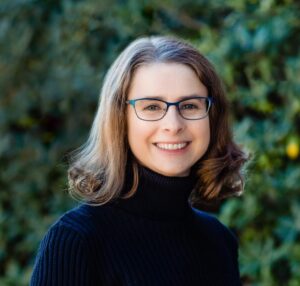
Aytaç Göğüş, Istanbul Okan University (she/her)
Professor Aytac Gogus is dean of the Faculty of Education and a professor of Educational Sciences at Istanbul Okan University, Turkey since July 1, 2020. She is the developer and coordinator of the Faculty Support Program and the Faculty Member Training and Development Program to establish a learning community between faculty members from different faculties and various domains. She received her PhD degree and MA in Instructional Design, Development and Evaluation at Syracuse University, USA. She received MS in Mathematics from the Middle East Technical University and BSc in Mathematics from Gazi University. She has 5 years of teaching experiences in K-12 and 20 years of teaching experiences in higher education in both Turkey and USA. A world citizen and an internationally renowned academician, visionary, principled, productive, and caring for those around her. She is an academician who work in harmony with kindness and principles with her character of workaholism, engagement and a high organizational commitment level in the institutions. She is a mother of two sharp teenagers and a wife of a Mathematics Professor.
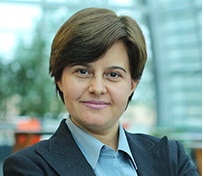
Christine Harrington, Morgan State University (she/her)
Christine Harrington is a student success and teaching and learning expert with over 20 years of experience in higher education. Currently, she is a professor in the Community College Leadership doctoral program at Morgan State University. Previously she coordinated the Ed.D. in Community College Leadership program at New Jersey City University and worked at Middlesex County College as a professor of psychology and student success and director of their Center for the Enrichment of Learning and Teaching. She has authored numerous books on teaching and learning and student success, including Keeping Us Engaged, Designing a Motivational Syllabus, and Dynamic Lecturing, and has been an invited presenter at more than 50 colleges and universities across the nation.
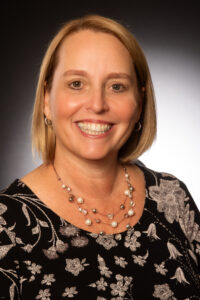
Isabeau Iqbal, University of British Columbia (she/her)
Dr. Isabeau Iqbal has enjoyed being an active member of the educational developer community for over 20 years. She leads several initiatives at the Centre, including the Formative Peer Review of Teaching Program and Teaching Dossiers. Additionally, she is a Professional Certified Coach with the International Coaching Federation, infusing her consultations, facilitation, and mentorship with a coaching approach that she values.
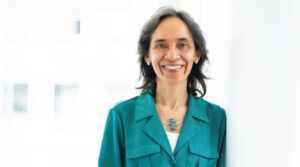
Lisa Jong, University of Wisconsin-Madison (she/her)
Lisa arrived at the University of Wisconsin from the University of Michigan’s Center for Research on Learning and Teaching with a background in supporting graduate students and postdoctoral scholars in their teaching roles. Her previous roles include teaching college writing and serving as an instructional consultant on an undergraduate course redesign initiative. Lisa’s academic background is in English literature, with a focus on Asian American and American Indian/Indigenous writing. Her interests in educational development include developing professional learning communities and facilitating antiracist discussions and writing assessments.

Dana Karraker, Illinois State University (she/her)
Dana Karraker serves as the Assistant Director for Educational Development Programs at Illinois State University. She holds a doctorate in Curriculum and Instruction and Literacy and has taught in various capacities in PreK-12 and university settings. She has been at ISU’s Center for Integrated Professional Development for ten years, leading course design cohorts, learning communities, and planning the university’s Teaching and Learning Symposium.
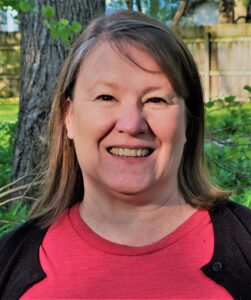
Cynthia Korpan, University of Victoria (she/her)
For over 18 years, Dr. Cynthia Korpan has been involved nationally and internationally in learning and teaching in higher education. In her role as Director of Teaching Excellence (up until March 2023) at the University of Victoria, she was responsible for taking the lead on institutional initiatives to enhance instruction to support students’ learning. This included the mentorship of 100s of graduate students and new faculty members. Nationally, through the Society of Teaching and Learning in Higher Education (STLHE), Cynthia has been involved in many different initiatives and currently, she is in her second term as Coordinator for the 3M National Student Fellowship. In 2016, Cynthia was awarded the Educational Developer Leadership Award.
Cynthia holds a PhD from the University of Victoria and her area of research concentrates on academics’ inaugural years of teaching in higher education with her PhD research focused on graduate students’ learning process as they began to teach in the academic workplace. Cynthia has several research projects currently active investigating various aspects related to early career academics and their involvement in teaching.
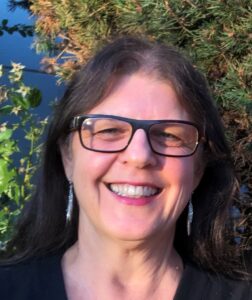
Ania Kowalik, Eindhoven University of Technology (Eindhoven, Netherlands) (she/her)
Ania Kowalik has a wide ranging background in higher education with teaching and educational development experience at a wide variety of institutions in the U.S. and in Europe. She holds a BA degree in English Language Acquisition, a Master’s degree in American Studies, and a PhD in Comparative Literature from Emory University. She began her career in educational development as a Dean’s Teaching Fellow at Emory’s Center for Faculty Development and Excellence and later held positions at Georgia Southern University, Georgia Institute of Technology, the University of Iowa, and Rice University, where she taught graduate pedagogy courses and undergraduate courses in writing and communication. In the summer of 2023, Ania joined the Eindhoven University of Technology in the Netherlands as a Teacher Coach & Advisor to support the university’s education innovation strategy by helping teachers develop skills in formative assessment, assessment as learning, and Challenge-Based Learning.
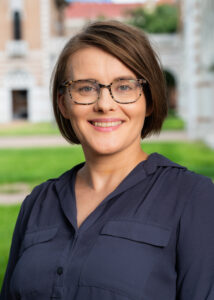
JuliA Metzker, Evergreen State College (she/her)
JuliA Metzker received her first degree from Evergreen, where she learned firsthand the value of a transformative liberal arts education. She obtained a doctoral degree in inorganic chemistry from the University of Arizona and completed a postdoctoral appointment at the University of York in the United Kingdom. In her 10 years as a chemistry professor at Georgia College, she discovered the power of community-based learning to engage students in learning that matters. After serving as Director of Community-Based Engaged Learning at Georgia college, she moved to Stetson University as the founding executive director for the Brown Center for Faculty Innovation and Excellence. During her journey of discovering herself as an educator, she was fortunate to find a cohort of like-minded university educators who co-founded the Innovative Course-building Group (IC-bG)—a grassroots social network for learning that supports teaching faculty and staff across disciplines. Recently, she co-authored Learning That Matters: A Field Guide to Course Design for Transformative Education, with colleagues from this group that takes a fresh approach to designing learning experiences for the 21st century. JuliA believes in reimagining and reclaiming the democratic potential of assessment, work she champions in her role as co-chair of Imagining America’s “Assessing the Practices of Public Scholarship” research collective.
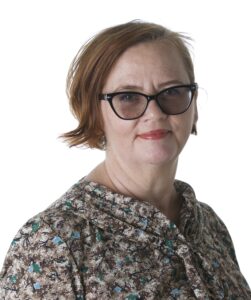
Taimi Olsen, Clemson University (she/her)
Dr. Taimi Olsen is the Executive Director of OTEI, the Office of Teaching Effectiveness and Innovation at Clemson University, having joined Clemson in 2017. At OTEI, she has established faculty learning communities, teaching conferences, peer review programs, course design institutes among other activities. She has a doctorate in American Literature from UNC-Chapel Hill (1997) and is the former director of the University of Tennessee, Knoxville’s Teaching and Learning Center. Her higher education career spans over 30 years, encompassing developing and teaching general education and major courses in her discipline. She is an affiliate faculty member of Clemson’s Department of English and reports to the Provost’s office.
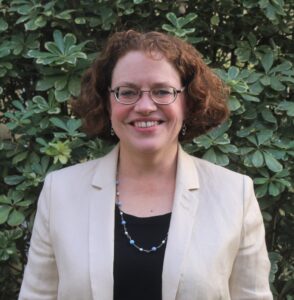
Patty Payette, University of Louisville (she/her)
Since 2007, Patty Payette, Ph.D. has served as University of Louisville’s executive director of the quality enhancement plan (QEP), an essential student success improvement component of the institution’s accreditation process. Patty consults with leaders and educators on the design, implementation, and assessment of their teaching and learning improvement projects and innovations. Patty earned her PhD in 2001 from Michigan State University where she was tapped to help build the Office of Faculty & Organizational Development. Her numerous publications focus on critical thinking skill building and best practices in promoting change and fostering collaboration across higher education arenas.
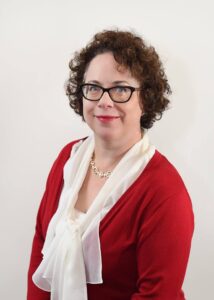
Susan Robison, Susan Robison Associates (she/her)
Susan Robison, Ph.D. is a psychologist, author, and faculty development consultant. Her book, The Peak Performing Professor: A Practical Guide to Productivity and Happiness, published by Jossey-Bass, has been selected for faculty book clubs all over North America. A former academic department chair and professor of psychology at Notre Dame of Maryland University, Susan has provided leadership workshops and consultation work with non-profits and colleges and has recently authored a leadership book for academic leaders, Coaching Skills for Academic Leaders: Bringing Out the Best in Yourself and Others, (Routledge Publishing, Fall 2023).
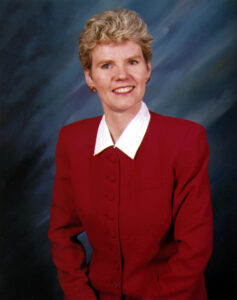
Kristi Rudenga, University of Notre Dame (she/her)
Kristi Rudenga directs the Kaneb Center for Teaching Excellence at the University of Notre Dame, where she also teaches in the Neuroscience and Graduate Education programs. In her 15 years of educational development experience, she has written and spoken most frequently about interactive learning, course design, mentoring, and the affective elements of teaching and educational development.
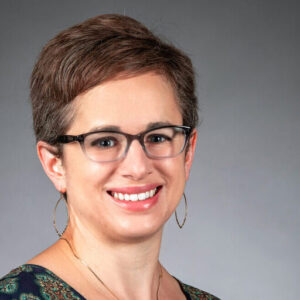
Day 3: Wednesday, July 31, 2024
Allison Boye, Collin College (she/her)
Dr. Allison Boye served as the Founding Director of the Center for Teaching and Learning for the Collin College System and former Associate Director of the Teaching, Learning, and Professional Development Center at Texas Tech University. She has been a member of the POD Core Committee, and has also served as Associate Editor for IDEA Center Staff Papers and as a consulting editor for College Teaching. Her work has appeared in publications such as To Improve the Academy, The Journal on Centers for Teaching and Learning, and The Scholarly Teacher.
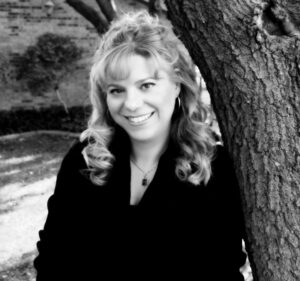
Erin Galyen, University of Arizona (she/her)
Erin Galyen is a Professor of Practice with the University Center for Assessment, Teaching, and Technology at the University of Arizona. She has been working in the field of educational development for over ten years and co-coordinates a 10-unit Certificate in College Teaching program. Her interdisciplinary background includes a Ph.D. in Teaching and Teacher Education, Masters degrees in Astronomy and English, and graduate certificates in instructional design and technology, as well as college teaching. Her educational development interests center around active and collaborative learning, inclusive and contemplative pedagogies, and she is a past chair of the POD Mindfulness and Contemplative Pedagogies SIG.

Peggy Hsieh, McGovern Medical School at UTHealth Houston (she/her)
Peggy received her doctorate degree in Educational Psychology from UT Austin and has been an educational developer for 15 years. She has frequently spoken at national and international conferences. She developed the Physician Educators Certificate Program (PECP) for residents and fellows to enhance their teaching skills and to support their academic career aspirations. To date, over 300 residents and fellows have completed the program. She enjoys working with educators to find the most optimal teaching method for learners and explore innovative teaching methods.
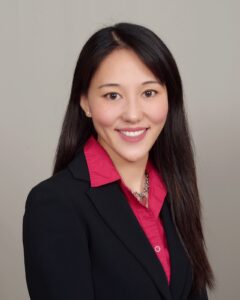
Isabeau Iqbal, University of British Columbia (she/her)
Dr. Isabeau Iqbal has enjoyed being an active member of the educational developer community for over 20 years. She leads several initiatives at the Centre, including the Formative Peer Review of Teaching Program and Teaching Dossiers. Additionally, she is a Professional Certified Coach with the International Coaching Federation, infusing her consultations, facilitation, and mentorship with a coaching approach that she values.

Heeyoung Kim, Rider University (she/her)
Heeyoung Kim is currently the Chief Diversity Officer & Director of the Teaching and Learning Center at Rider University in Lawrenceville NJ. She leads the Center for Diversity Inclusion and the Teaching and Learning Center. She is an adjunct assistant professor in the Department of Information Systems & Supply Chain Management, where she teaches statistics and analytic courses in both online and face-to-face formats. An active member of POD network, she is the former chair of the Small Centers & Small College’s Special Interest Group (2021-2022), the Conference Committee Co-chair (2022-2023), and a leader of the Affinity Group and AAPI group.
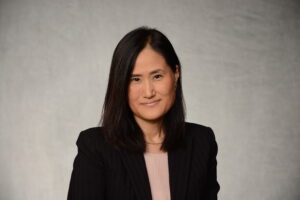
Cynthia Korpan, University of Victoria (she/her)
For over 18 years, Dr. Cynthia Korpan has been involved nationally and internationally in learning and teaching in higher education. In her role as Director of Teaching Excellence (up until March 2023) at the University of Victoria, she was responsible for taking the lead on institutional initiatives to enhance instruction to support students’ learning. This included the mentorship of 100s of graduate students and new faculty members. Nationally, through the Society of Teaching and Learning in Higher Education (STLHE), Cynthia has been involved in many different initiatives and currently, she is in her second term as Coordinator for the 3M National Student Fellowship. In 2016, Cynthia was awarded the Educational Developer Leadership Award.
Cynthia holds a PhD from the University of Victoria and her area of research concentrates on academics’ inaugural years of teaching in higher education with her PhD research focused on graduate students’ learning process as they began to teach in the academic workplace. Cynthia has several research projects currently active investigating various aspects related to early career academics and their involvement in teaching.

JuliA Metzker, Evergreen State College (she/her)
JuliA Metzker received her first degree from Evergreen, where she learned firsthand the value of a transformative liberal arts education. She obtained a doctoral degree in inorganic chemistry from the University of Arizona and completed a postdoctoral appointment at the University of York in the United Kingdom. In her 10 years as a chemistry professor at Georgia College, she discovered the power of community-based learning to engage students in learning that matters. After serving as Director of Community-Based Engaged Learning at Georgia college, she moved to Stetson University as the founding executive director for the Brown Center for Faculty Innovation and Excellence. During her journey of discovering herself as an educator, she was fortunate to find a cohort of like-minded university educators who co-founded the Innovative Course-building Group (IC-bG)—a grassroots social network for learning that supports teaching faculty and staff across disciplines. Recently, she co-authored Learning That Matters: A Field Guide to Course Design for Transformative Education, with colleagues from this group that takes a fresh approach to designing learning experiences for the 21st century. JuliA believes in reimagining and reclaiming the democratic potential of assessment, work she champions in her role as co-chair of Imagining America’s “Assessing the Practices of Public Scholarship” research collective.

Ellen Moll, Michigan State University (she/her)
Ellen Moll is the Interim Assistant Dean of Undergraduate Studies in the College of Arts and Letters at Michigan State University, where she also directs the Center for Integrative Studies in the Arts and Humanities, a general education arts and humanities center serving over 15,000 students a year, as well as the Interdisciplinary Humanities and Humanities Prelaw major programs. Areas of specialization include curriculum, pedagogy, student affairs, educator development, equity and justice in higher education, theory and practice of interdisciplinarity, and general education, and she teaches arts and humanities approaches to gender, race, technology, and science. Recent projects have included educator development initiatives on empowering instructors to work for unit-level change, and research on metacognition and “Crafting Rejuvenating Spaces for Knowledge” in pedagogy and curriculum.
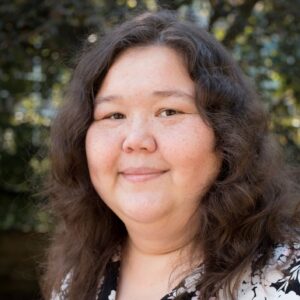
Taimi Olsen, Clemson University (she/her)
Dr. Taimi Olsen is the Executive Director of OTEI, the Office of Teaching Effectiveness and Innovation at Clemson University, having joined Clemson in 2017. At OTEI, she has established faculty learning communities, teaching conferences, peer review programs, course design institutes among other activities. She has a doctorate in American Literature from UNC-Chapel Hill (1997) and is the former director of the University of Tennessee, Knoxville’s Teaching and Learning Center. Her higher education career spans over 30 years, encompassing developing and teaching general education and major courses in her discipline. She is an affiliate faculty member of Clemson’s Department of English and reports to the Provost’s office.

Julie Phillips, Thomas Jefferson University (she/her)
Julie’s titles have included Visiting, Assistant and Adjunct Professor—Teaching, Course Director, Assistant Director, and Assistant Provost over her 25+ years in higher education. Three threads dominate her academic career—leading multi-disciplinary teams through curricular change, finding the balance among pedagogy, ideas and technology, and supporting faculty at all stages of their career to create and build robust learning experiences. She considers herself a generalist, and this can be traced back to her PhD from Purdue University in Rhetorical Theory & Public Address because ideas must be explored through communication.

Christine Rener, Grand Valley State University (she/her)
Christine Rener is Vice Provost for Instructional Development and Innovation, Director of the Robert and Mary Pew Faculty Teaching and Learning Center, and Professor of Chemistry at Grand Valley State University in Grand Rapids, Michigan and the President-Elect of the POD Network. She earned her Ph.D. in Biochemistry, Molecular Biology and Cell Biology from Northwestern University. Christine was the Founding Director of Faculty Development at Carthage College where she also taught chemistry and served in a variety of administrative roles. Within the POD Network, she has served on the Core Committee and as chair of the Professional Development and External Partnerships and Outreach Committees.

Kristi Rudenga, University of Notre Dame (she/her)
Kristi Rudenga directs the Kaneb Center for Teaching Excellence at the University of Notre Dame, where she also teaches in the Neuroscience and Graduate Education programs. In her 15 years of educational development experience, she has written and spoken most frequently about interactive learning, course design, mentoring, and the affective elements of teaching and educational development.

Janel Seeley, University of Wyoming (she/her)
Janel Seeley, PhD, received her doctorate in Educational Psychology and Research from the University of Tennessee. She is currently the director of the Ellbogen Center for Teaching and Learning at the University of Wyoming and associate lecturer in education. She has served as chair of the POD SOTL SIG, as a leader for the ISSOTL ICWG-Public , Chair of Knowledge Democracy for ARNA and conference planner for The Global Assembly for Knowledge Democracy. Her interests and expertise include Collaborative Communication, SoTL, inclusive pedagogy and active learning.
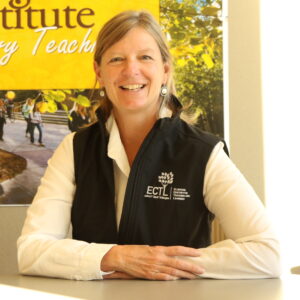
Rosemary Tyrell, University of California Riverside (she/her)
Rosemary Tyrrell, EdD, is currently the Director of the Office of Faculty Development and an Assistant Clinical Professor in the Department of Social Medicine, Population and Public Health at the University of California Riverside School of Medicine. Dr. Tyrrell oversees a six-person unit that provides 100s of faculty development programs and services to support excellence in teaching. Her unit also has primary responsibility for curriculum mapping and educational technology. Dr. Tyrrell chairs and serves on a number of committees, including the LCEM Standard 9 Committee and the TEACH Team (Teaching Excellence and Course Enhancement). Her duties also include overseeing the Administrative Fellowship program at the School of Medicine.

Stacy Ybarra, Our Lady of the Lake University (she/her)
Stacy Ybarra Evans is a 2022 Ricardo Salinas Aspen Fellow first generation Latina from the Southside of San Antonio. She currently serves as the Director of the Center for Teaching Excellence at Our Lady of the Lake University. She works to develop students’ academic skills as a first-year seminar instructor at San Antonio College of the Alamo Colleges District where she worked for 20 years. During her tenure at ACD, she received the Starfish award as a college advisor at Palo Alto College. She is also a current researcher with the Texas Association of Community Colleges helping analyze focus group information on guided pathways, basic student needs and teaching and learning practices. As a contractor with Quality Matters, the leading organization in instructional design standards, she has led teams nationally to get online courses approved. As an ACUE facilitator she works to encourage new teaching practices at San Antonio College from 2021 to present. She graduated from Palo Alto College with an associate degree, Texas A&M University – San Antonio for her bachelor’s and master’s degree and Capella University where she conferred her doctorate degree in 2019. She has also brought her voice to bring attention to gender diversity in leadership by participating in leadership programs such as the San Antonio Hispanic Chamber’s Latina Leadership Institute, Leadership SAISD and South San Antonio Chamber’s City South Leadership program.

Kevin Yee, University of Central Florida (she/her)
Kevin is Director of UCF’s Faculty Center for Teaching and Learning, and has been working in educational development since 2004. In the classroom, Kevin believes the science of learning provides a crucial foundation for instructors, influencing everything from course design and assessment structure, to classroom management and lesson planning. He is an avid believer in interactive teaching, and has curated a popular list of interactive techniques since 1992. More recently, he’s been developing resources for faculty related to AI Fluency and how to use generative AI (such as ChatGPT) in the college classroom.
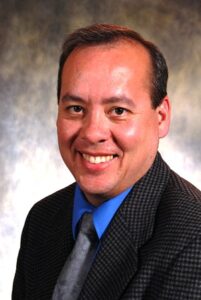
Day 4: Thursday, August 1, 2024
Christian Castro, Madison College of Engineering (he/him)
A nationally recognized thought leader in inclusive teaching, Dr. Christian Castro has worked in a variety of academic fields in higher education as a faculty member, educational consultant, and administrator for over 15 years. He has served as core facilitator on the NSF-funded program, ASPIRE: National Alliance for Inclusive and Diverse STEM Faculty, and is a featured expert on the American Society of Engineering Education (ASEE) inaugural course on inclusive teaching. At the UW-Madison College of Engineering, his portfolio includes leading efforts that integrate diversity, equity, inclusion, access, and belonging with instructional design and faculty development.

Christine Harrington, Morgan State University (she/her)
Christine Harrington is a student success and teaching and learning expert with over 20 years of experience in higher education. Currently, she is a professor in the Community College Leadership doctoral program at Morgan State University. Previously she coordinated the Ed.D. in Community College Leadership program at New Jersey City University and worked at Middlesex County College as a professor of psychology and student success and director of their Center for the Enrichment of Learning and Teaching. She has authored numerous books on teaching and learning and student success, including Keeping Us Engaged, Designing a Motivational Syllabus, and Dynamic Lecturing, and has been an invited presenter at more than 50 colleges and universities across the nation.

Peggy Hsieh, McGovern Medical School at UTHealth Houston (she/her)
Peggy received her doctorate degree in Educational Psychology from UT Austin and has been an educational developer for 15 years. She has frequently spoken at national and international conferences. She developed the Physician Educators Certificate Program (PECP) for residents and fellows to enhance their teaching skills and to support their academic career aspirations. To date, over 300 residents and fellows have completed the program. She enjoys working with educators to find the most optimal teaching method for learners and explore innovative teaching methods.

Amanda Irvin, Columbia University (she/her)
Amanda Irvin serves as Executive Director of the Columbia CTL. In this role, she oversees the development and facilitation of programs to support pedagogical innovation, purposeful use of educational technology, and learner-centered teaching for faculty and instructors at Columbia. Recognized as a national expert in inclusive teaching and passionate about issues of justice, equity, diversity, and inclusion in higher education, Amanda works in schools and departments, as well as individually with instructors and administrators, to create and support positive change.
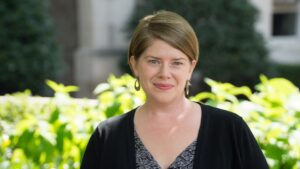
Eric Kaldor, Brown University (he/him)
Eric Kaldor has led the Assessment and Interdisciplinary Teaching Communities hub at the Sheridan Center since 2020. In that role, he supports the assessment of student learning, teaching effectiveness, and curricula across Brown as well as assessment of Sheridan Center programs. He has facilitated a range of intensive educational development programs including Sheridan’s Seminar for Transformation around Anti-Racist Teaching and the University of Rhode Island’s High Impact Teaching Seminar. He has worked in a wide range of institutions including the University of Rhode Island, SUNY Brockport, and Temple University. On the POD Professional Development Committee, he supports peer mentoring for educational developers through the POD Connects program.

Heeyoung Kim, Rider University (she/her)
Heeyoung Kim is currently the Chief Diversity Officer & Director of the Teaching and Learning Center at Rider University in Lawrenceville NJ. She leads the Center for Diversity Inclusion and the Teaching and Learning Center. She is an adjunct assistant professor in the Department of Information Systems & Supply Chain Management, where she teaches statistics and analytic courses in both online and face-to-face formats. An active member of POD network, she is the former chair of the Small Centers & Small College’s Special Interest Group (2021-2022), the Conference Committee Co-chair (2022-2023), and a leader of the Affinity Group and AAPI group.

Ellen Moll, Michigan State University (she/her)
Ellen Moll is the Interim Assistant Dean of Undergraduate Studies in the College of Arts and Letters at Michigan State University, where she also directs the Center for Integrative Studies in the Arts and Humanities, a general education arts and humanities center serving over 15,000 students a year, as well as the Interdisciplinary Humanities and Humanities Prelaw major programs. Areas of specialization include curriculum, pedagogy, student affairs, educator development, equity and justice in higher education, theory and practice of interdisciplinarity, and general education, and she teaches arts and humanities approaches to gender, race, technology, and science. Recent projects have included educator development initiatives on empowering instructors to work for unit-level change, and research on metacognition and “Crafting Rejuvenating Spaces for Knowledge” in pedagogy and curriculum.

Carl Moore, Youniversal Luv Unlimited (he/him)
Dr. Carl S. Moore, a certified StrengthsFinder Coach and MBTI administrator, is the president of Youniversal Luv Unlimited, a company devoted to empowering self-worth. Currently an Executive Fellow for Learning Innovation at EdFarm Propel, he has served in leadership roles at Howard Community College, the University of the District of Columbia, and Temple University. He is a faculty member at USC’s Equity Institute, board member for the Online Learning Consortium, and a peer evaluator for the Middle States Commission on Higher Education. Carl’s expertise includes strategic planning, leadership development, inclusive teaching, faculty development. His diverse background comprises creating faculty development units across various institutions and delivering courses and workshops in multiple formats. As an executive coach, Carl’s mission is to facilitate individual, team, and organizational growth.
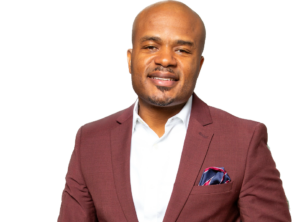
Naomie Nyanungo, West Chester University of Pennsylvania (she/her)
Hleziphi (Naomie) Nyanungo is Associate Provost for Teaching and Learning Innovation at West Chester University of Pennsylvania where she leads a recently established Teaching and Learning Center. She is passionate about nurturing learning environments where students and instructors of all backgrounds and situations feel valued and supported. Prior to joining WCU, she served as the Director of Educational Technology at the Center for the Advancement of Teaching at Temple University.

Matthew L. Ouellett, Cornell University (he/him)
A POD member since 1994, Matt has been a regular contributor to the field of faculty and education development at regional, national, and international levels. He has written and collaborated on a range of publications and research projects. In the POD Network, he has served in a range of volunteer and elected roles including member and past chair of the Diversity Commission; CORE member; and president. In 2012 Matt was honored with the Bob Pierlione Spirit of POD Award. Melina Ivanchikova and Matt were awarded a POD Network Innovation Award for “Teaching and Learning in the Diverse Classroom: An Online Professional Development Course for Instructors” (2020).
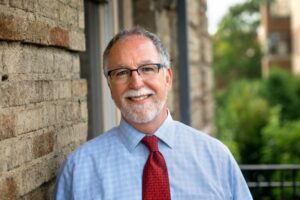
Patty Payette, University of Louisville (she/her)
Since 2007, Patty Payette, Ph.D. has served as University of Louisville’s executive director of the quality enhancement plan (QEP), an essential student success improvement component of the institution’s accreditation process. Patty consults with leaders and educators on the design, implementation, and assessment of their teaching and learning improvement projects and innovations. Patty earned her PhD in 2001 from Michigan State University where she was tapped to help build the Office of Faculty & Organizational Development. Her numerous publications focus on critical thinking skill building and best practices in promoting change and fostering collaboration across higher education arenas.

Christine Rener, Grand Valley State University (she/her)
Christine Rener is Vice Provost for Instructional Development and Innovation, Director of the Robert and Mary Pew Faculty Teaching and Learning Center, and Professor of Chemistry at Grand Valley State University in Grand Rapids, Michigan and the President-Elect of the POD Network. She earned her Ph.D. in Biochemistry, Molecular Biology and Cell Biology from Northwestern University. Christine was the Founding Director of Faculty Development at Carthage College where she also taught chemistry and served in a variety of administrative roles. Within the POD Network, she has served on the Core Committee and as chair of the Professional Development and External Partnerships and Outreach Committees.

Janel Seeley, University of Wyoming (she/her)
Janel Seeley, PhD, received her doctorate in Educational Psychology and Research from the University of Tennessee. She is currently the director of the Ellbogen Center for Teaching and Learning at the University of Wyoming and associate lecturer in education. She has served as chair of the POD SOTL SIG, as a leader for the ISSOTL ICWG-Public , Chair of Knowledge Democracy for ARNA and conference planner for The Global Assembly for Knowledge Democracy. Her interests and expertise include Collaborative Communication, SoTL, inclusive pedagogy and active learning.

Karen Skibba, University of Wisconsin-Madison (she/her)
Karen Skibba, Ph.D., specializes in online and blended faculty development and developing quality online and blended courses. She also develops and facilitates a variety of learning communities and workshops and develops resources to help all instructors enhance teaching and learning. Karen has authored book chapters on educational technologies and online and blended teaching and faculty development. She presents her award-winning research at international conferences.

Christine Stanley, Texas A&M University (she/her)
A past president of the Professional and Organizational Development (POD) Network in Higher Education, Christine Stanley is a regents professor of higher education, holder of the Ruth Harrington Endowed Chair for Educational Leadership, and vice president and associate provost for diversity emerita in the School of Education and Human Development at Texas A&M University. Dr. Stanley has a passion for how colleges and universities function as organizational systems. She has edited several books, over seventy peer-reviewed publications, and her research focuses on faculty professional development, administrator development, and the experiences of minoritized faculty in predominantly White colleges and universities. A native of Jamaica, The West Indies, she has consulted on faculty development and diversity issues in the United States, Armenia, Canada, China, Mexico, and South Africa.
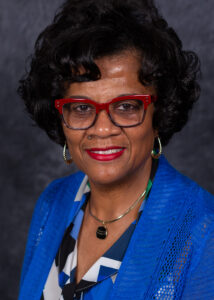
Thomas J. Tobin, University of Wisconsin-Madison (he/him)
Thomas J. Tobin, PhD, MSLS, PMP, MOT, CPACC is a founding member of the Center for Teaching, Learning, & Mentoring at the University of Wisconsin-Madison, as well as an internationally recognized scholar, author, and speaker on technology-mediated education. His books include
Evaluating Online Teaching: Implementing Best Practices (2015).
The Copyright Ninja (2017).
Reach Everyone, Teach Everyone: Universal Design for Learning in Higher Education (2018).
Going Alt-Ac: A Guide to Alternative Academic Careers (2020).
UDL for FET Practitioners: Guidance for Implementing Universal Design for Learning in Irish Further Education and Training (2021).
Find him on various social media and at thomasjtobin.com.

Stacy Ybarra, Our Lady of the Lake University (she/her)
Stacy Ybarra Evans is a 2022 Ricardo Salinas Aspen Fellow first generation Latina from the Southside of San Antonio. She currently serves as the Director of the Center for Teaching Excellence at Our Lady of the Lake University. She works to develop students’ academic skills as a first-year seminar instructor at San Antonio College of the Alamo Colleges District where she worked for 20 years. During her tenure at ACD, she received the Starfish award as a college advisor at Palo Alto College. She is also a current researcher with the Texas Association of Community Colleges helping analyze focus group information on guided pathways, basic student needs and teaching and learning practices. As a contractor with Quality Matters, the leading organization in instructional design standards, she has led teams nationally to get online courses approved. As an ACUE facilitator she works to encourage new teaching practices at San Antonio College from 2021 to present. She graduated from Palo Alto College with an associate degree, Texas A&M University – San Antonio for her bachelor’s and master’s degree and Capella University where she conferred her doctorate degree in 2019. She has also brought her voice to bring attention to gender diversity in leadership by participating in leadership programs such as the San Antonio Hispanic Chamber’s Latina Leadership Institute, Leadership SAISD and South San Antonio Chamber’s City South Leadership program.

Kevin Yee, University of Central Florida (he/him)
Kevin is Director of UCF’s Faculty Center for Teaching and Learning, and has been working in educational development since 2004. In the classroom, Kevin believes the science of learning provides a crucial foundation for instructors, influencing everything from course design and assessment structure, to classroom management and lesson planning. He is an avid believer in interactive teaching, and has curated a popular list of interactive techniques since 1992. More recently, he’s been developing resources for faculty related to AI Fluency and how to use generative AI (such as ChatGPT) in the college classroom.

